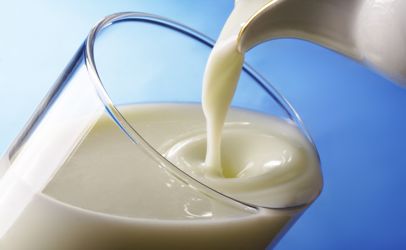Source:
biotechnology.com
A
recent research done in Penn State's College of Agricultural Sciences reports
that milk powder containing Ritonavir can be used as a transport system to
deliver drug that is not very soluble in water.
 |
| Creative Bioarray |
According
to Harte, one of these researchers involved in this research, an altered
protein with an antiretroviral drug in milk promises to greatly improve
treatment for infants and young children suffering from HIV/AIDS,
The
World Health Organization has reported that there are an estimated 3.4 million
children living with HIV/AIDS, and 1/9 of them live in countries and regions where
effective antiretroviral treatments still are not widely accessible or
available. Most of those children cannot receive a proper treatment due to
limited resources.
Another
problem is that most antiretroviral drugs are not well tolerated by very young
children. Ritonavir, as the most commonly prescribed antiretroviral drugs for
treating and preventing HIV has undesirable side effects and important
oral-delivery problems.
Ritonavir
is with high hydrophobicity and low solubility in water, which leads to insufficient
bioavailability. Besides, the liquid formulation to deliver Ritonavir not only
tastes bad, it can also cause side effects such as nausea, vomiting and
diarrhea. For those reasons a new alternative pediatric formulation of
Ritonavir with better water solubility and oral flavor is needed.
Harte’s
team has recently found a protein named caseins in cow's milk and this protein
is said to be responsible for the white color of milk. They find that these
casein micelles are able to carry molecules that have very little solubility in
water with low molecular weight and could be bound to triclosan- an antimicrobial
used in deodorants and vitamin D, which is added regularly to skim milk. This
finding shows that casein micelles are natural delivery systems for amino acids
and calcium from mother to young.
“We
don't have the data yet- we find that the Ritonavir is being adequately
delivered by the protein in milk. So if that works, I think we are pretty close
to having a formulation that can be used with hydrophobic drugs." Harte
said.
He
also noted that he has made a proposal for research funding and hoped that they
could finalize with a new formulation to help those children suffered from
AIDS.
Their
study has yet not entered the trail stage and further works are needed.
No comments:
Post a Comment